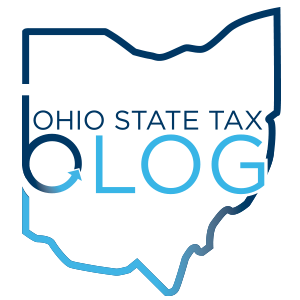Mr. Contractor: Are You Correctly Addressing Ohio Sales Tax On Your Construction Contracts? (Part I)
As the deemed consumer, a contractor must pay Ohio sales/use tax (“tax”) on its purchases of materials incorporated into real property, unless an exemption exists. The contactor’s related transaction with the property owner is characterized as a construction contract. Since tax was already paid on the contractor’s purchases, no sales tax needs to be collected from the property owner on the construction contract.
Alternatively, if the materials do not become real property upon installation, the contractor must collect sales tax from its customer on the contract price, including materials and installation labor. In these circumstances, the contractor’s purchase of materials is exempt from tax pursuant to the resale exemption. However, if the contractor fails to claim the resale exemption, it is not entitled to offset the tax erroneously paid on its purchases against the sales tax required to be collected from its customer. Likewise, tax erroneously collected by a contractor from its customer cannot be used to offset the tax due on the contractor’s purchases of materials consumed in the performance of a construction contact.
Thus, it is important for the contractor to correctly determine whether the materials it purchases will constitute real property after installation or remain personal property. In Ohio, “real property” includes a building, fixture, improvement or structure (and of course, land), each of which is further defined in R.C. 5701.02. Real property does not include “business fixtures”, which are items of tangible personal property that become permanently attached or affixed to the real property but that primarily benefits the business conducted by the occupant of the premises and not the realty. R.C. 5701.03(B). Accordingly, special purpose components of a building or structure generally are not real property. Business fixtures include signs; storage bins and tanks; transportation, transmission, and distribution systems; machinery, equipment, and foundations and supports therefor; and improvements specifically designed, constructed and used for the business conducted on the realty. Specifically excluded from the definition of “business fixture” are general purpose property common to all buildings, such as heating, ventilating, and air conditioning systems, utility lines, and electrical and communication lines.
Since the Ohio Supreme Court’s 2004 decision in Funtime, Inc. v. Wilkins (2004), 105 Ohio St.3d 74, the characterization of property as either real property or a business fixture has become increasingly difficult, seemingly expanding the definition of business fixture to include any property particular to the business being conducted on the land. In Funtime, special use buildings and structures, including a water ride, roller coaster, a “Skyscraper” and the station house sheltering patrons standing in line for a roller coaster (Mind Eraser), were held to be business fixtures. The Court found these items to be personal property because there was no evidence that the rides would be of any benefit to a buyer of the land who engaged in a different business.
Nonetheless, subsequent decisions by the Ohio Board of Tax Appeals (“Board”) appear to limit business fixtures to distinct items of tangible personal property that:
- do not become part of a permanent fabrication or construction on the property whose removal would cause “significant injury to the land”; and
- have a specific business purpose.
Often, it is difficult to determine at the time of the contractor’s purchase whether materials will become real property upon installation – meaning the contractor owes tax on its purchases – or if such materials will remain personal property – meaning the contractor’s purchases are entitled to the resale exemption. A contractor can be protected from uncertain classification by requesting a written certification from the property owner, before entering into a construction contract, as to whether the improvement will be real or personal property. As it is entitled to rely upon the owner’s certification, the contractor can simply pay or collect Ohio sales/use tax consistent with the owner’s certification of the property as being either real or personal property, with the risk of erroneous classification being transferred to the property owner.
Additional considerations, to be addressed in subsequent articles, include exemptions available on a contractor’s purchase of materials which will become real property upon installation (Part II) and how to address mixed transactions, whereby some of the improvements provided under a construction contract will become real property while others constitute business fixtures and will remain personal property (Part III). Please contact us if you need help classifying property as either real or personal property.
